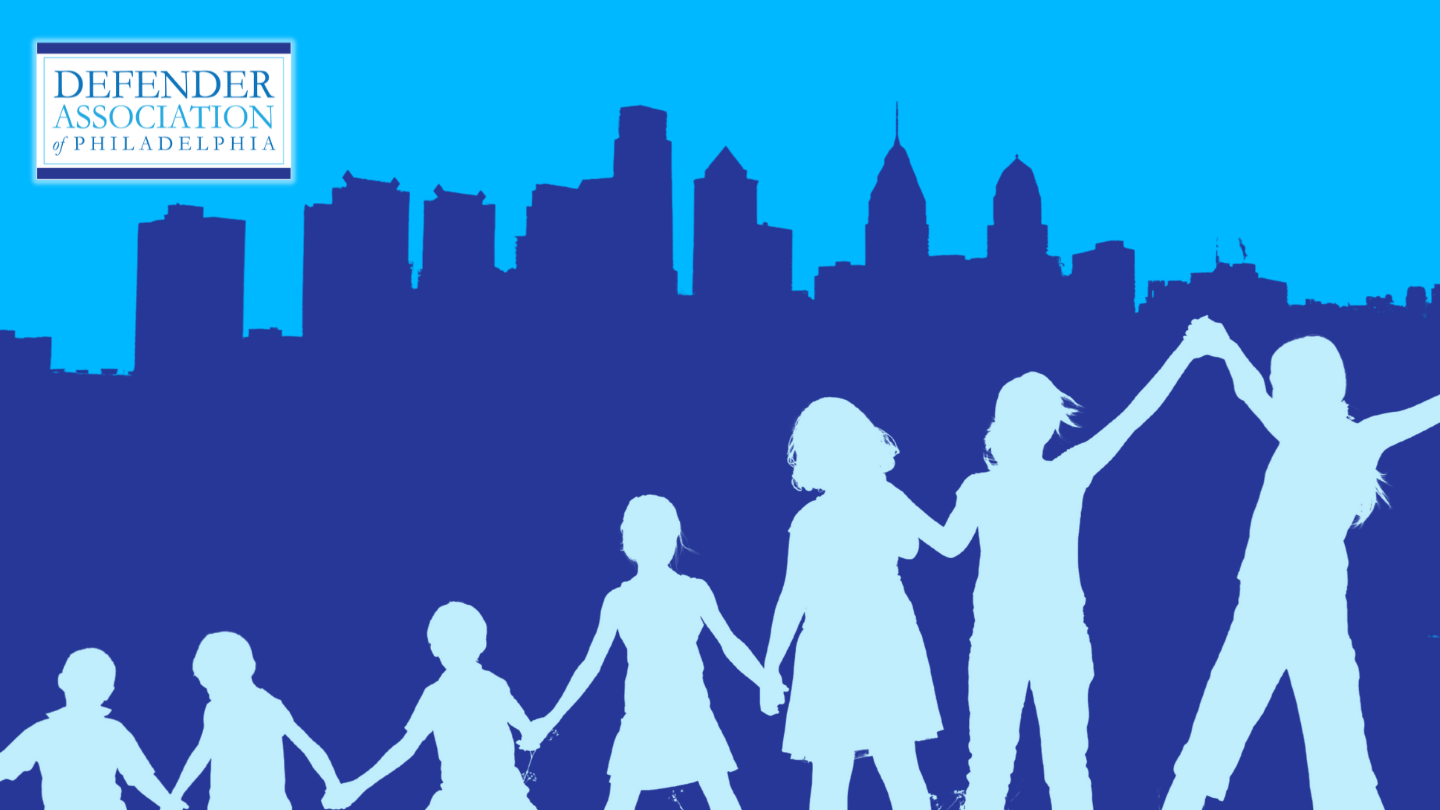The Child Advocacy Unit (CAU) was created in 1974 and contracts with the City of Philadelphia to represent children. The children we represent:

The Defender Association and Children’s Rights and the Defender Association of Philadelphia (Defender) are working together to preserve families and uphold children’s constitutional right to family integrity. The goal is to ensure that Philadelphia family courts and child welfare agencies are providing families with all the legally required support to keep families together and prevent children from being unnecessarily separated from their families and placed in the foster system.
Across Philadelphia, children are at risk of separation due to poverty-related challenges like housing insecurity, food instability, and lack of access to mental health care. This is despite federal and Pennsylvania laws requiring the Department of Human Services (DHS) and Community Umbrella Agencies (CUAs) to make consistent, timely efforts to keep families intact. Required efforts include providing stable housing and access to substance use treatment and mental health care, addressing racial biases, and prioritizing kinship placements. The courts must hold agencies accountable for meeting these standards.
Research shows that when children are separated from their families, even very briefly, they endure emotional trauma that can have lifelong mental and physical health consequences. Once in custody, they are deprived of existing support systems, denied adequate care, and face increased risks of abuse. These harms fall disproportionately on Black and brown children, who are more likely to suffer unnecessary removals and prolonged separation.
The Child Advocacy Unit (CAU) first began as a pilot project in 1974. Within just 2 years, it grew into a federally funded program providing legal representation to dependent children. With an initial staff of five, the CAU’s original mandate was to advocate for the protection of a child who was abused, neglected, or deprived, and to represent a child placed on an involuntary mental health commitment.
During this period, Family Court judges appointed the CAU to a child only when there was “a divergence of interest between parent and child.” As judges rotated through Family Court, they relied on the same “divergence of interest” standard to appoint the CAU to represent a child in divorce and adoption proceedings, in paternity suits, and to minor organ donors at the Children’s Hospital of Philadelphia. By the 1977-78 fiscal year, the CAU caseload had skyrocketed to 3002 children.
As a result of a 1990 class action lawsuit, T.M. v. City of Philadelphia, the Family Court was ordered to appoint a child advocate to every child in Philadelphia with a dependent petition. The CAU received the bulk of the dependency cases of Philadelphia children and youth moving forward.
While the CAU continued to grow, the interdisciplinary approach of law and social work grew along with it. As soon as the CAU receives a court appointment order, each child is assigned a social worker and attorney team to represent them. It was, and continues to be, the belief of the CAU that the combined practice of law and social work leads to the most comprehensive approach to representing our clients.
Throughout the 90s and into the early years of 2000 the numbers of children the CAU represented continued to increase significantly. As a result, more attorneys and social workers were hired to ensure that the specific needs of each client could be closely addressed and to continue to promote zealous representation and best outcomes for our clients. As of 2023 there are 32 social workers, 29 attorneys and 5 administrative staff employed full time at the CAU.
Child Advocate Attorneys complete independent assessments of dependency cases and advocate in court for the delivery of services to our clients and their families.
Child Advocate Social Workers assess a child’s emotional, social, physical, and educational needs.
The assigned CAU Attorney and Social Worker:
We are guided by the principles and ethics of the Pennsylvania Child Protective Services Law, the Juvenile Act, and the Adoption and Safe Families Act.
Our clients are represented by an attorney and social worker team who work together throughout the life of a case to:
Agencies/Organizations:
Types of Hearings:
Permanency Plans:
Individuals Involved:
Miscellaneous:
Their clients trust them because they understand the challenges imposed by the system and the pain of being away from their families. Our peer advocates have helped their clients get bank accounts, get jobs, and speak up for their rights when other adults in the system are not willing to listen.
They also provide a bridge between the client and the attorney, who – while wanting to do the best for their clients – may not be as attuned to their needs because they do not come from the same experiences. These are young people who have survived trauma and have chosen to give back to make sure they leave the system better than it was when they were part of it.
Mimi Laver, CAU Chief
Rebecca Mainor, Assistant Chief
Marni Gangel, CAU Policy Director
Beth Kahn, CAU Attorney Training
Sharene Ginyard, CAU Recruitment
Aminah Husam, CAU Peer Advocates